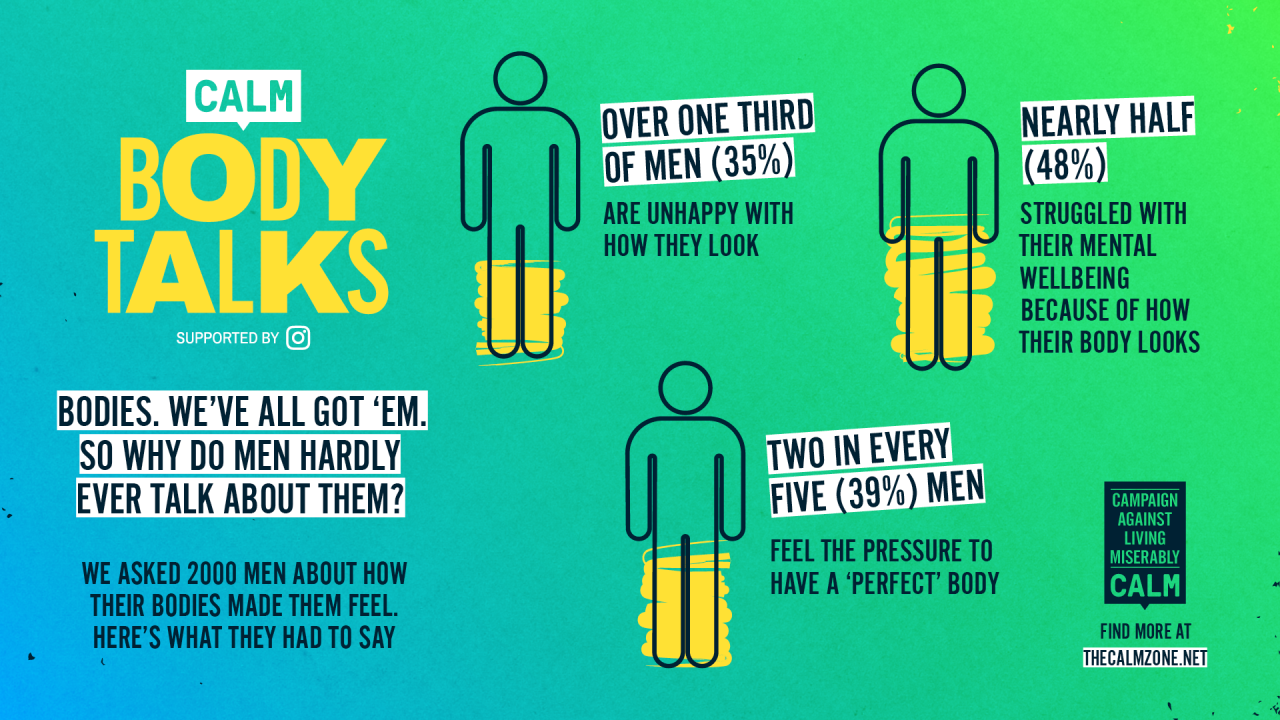Campaign Against Living Miserably (CALM) and Instagram: Calm Body Talks
- Location:

The implications of the pandemic for mental health has been huge, so much so, The Royal College of Psychiatrists has called it a “mental health crisis”. One area that doesn't get enough airtime is the impact male body image has on young men.
As a direct result of the pandemic, over half of young men have felt negative about their body, while 48% say their mental health has suffered because of how they feel about it, according to research commissioned by Campaign Against Living Miserably (Calm).
Scrolling through Instagram, while the body positive and self-love moment is positively thriving, there is an obvious gender divide. Of the thousands sharing their experiences of body changes during lockdown, advice for self-care and motivational messages, hashtags like #bodypositivity and #selflove are generally a female domain, with a distinct lack of male voice in the conversation.
On a mission to get more young men to feel comfortable talking about these sensitive issues, Calm has teamed up with Instagram on a series of interviews called 'Calm Body Talks'.
It features some famous faces, like Jamie Laing who opened up about his own height and hair worries and Russell Kane who discusses societal issues of 'bigorexia' and male role models. Joining them on the project, ex-pro footballer Leon McKenzie discusses the physical and mental impact of retiring from the game and body acceptance activist Stevie Blaine opens up about teenage insecurities and his personal journey to self-love.
"Body image worries affect people of all genders, body types and backgrounds. And the conversation is much deeper than just weight or body shape,” argues Simon Gunning, Calm's chief exec.
He says that the worries are complex, and can have a significant impact on people’s mental wellbeing. "We know that men can often feel disengaged or excluded from the conversation of body positivity because of unhelpful stereotypes,” he says.




